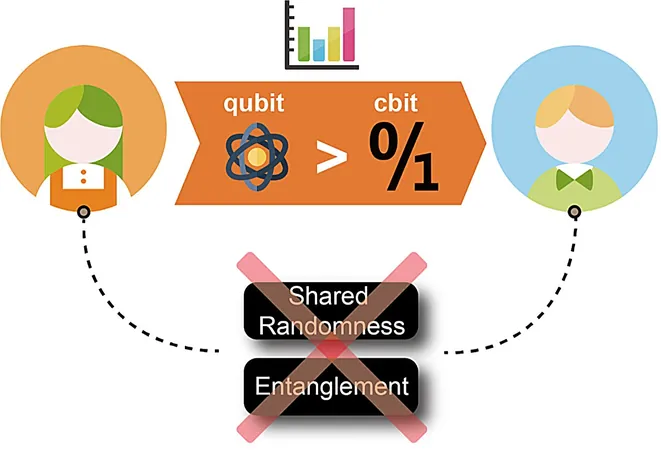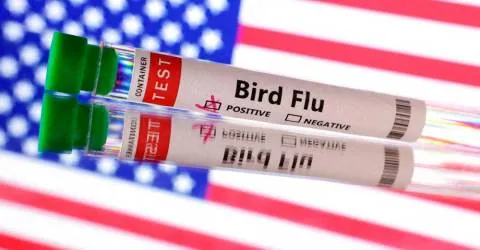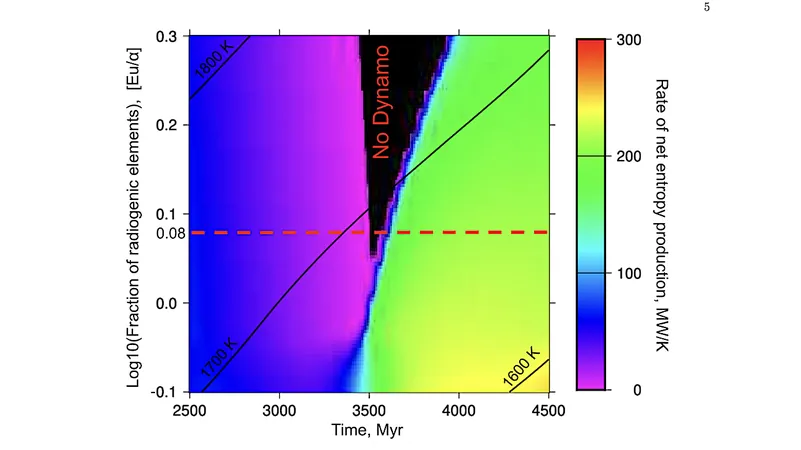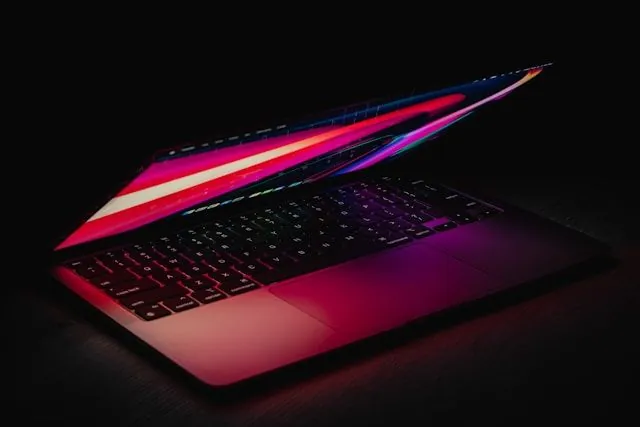
Breakthrough in Quantum Data Storage: A Single Qubit Outshines Classical Bits!
2024-12-02
Author: Noah
Introduction
In the race of technology to unlock the next frontiers, quantum computing has emerged as a fascinating contender. Recent studies have sought to prove that quantum processors can outperform classical computers in specific tasks, but substantial evidence supporting a clear "quantum advantage" has been hard to come by—until now.
Groundbreaking Findings
A groundbreaking experiment conducted by researchers from the Henan Key Laboratory of Quantum Information and Cryptography and the S. N. Bose National Center for Basic Sciences has finally established such an advantage in the realm of data storage. Their findings, published in the reputable journal Physical Review Letters, demonstrate that a single qubit—quantum information's fundamental unit—can outperform a classical bit in a communication task devoid of shared randomness.
Heliang Huang, a senior author of the study, noted the complexities involved in showcasing quantum advantages. Commonly, theoretical frameworks like the Holevo and Frenkel-Weiner results suggest a quantum bit doesn't inherently provide any benefits over classical bits in traditional communication setups—unless shared correlations exist between communicators. This poses significant challenges because creating reliable classical correlations can drain resources quickly.
Innovation in Experimentation
However, the researchers have flipped the script! Their experiment tested whether a qubit could still take the lead in a classical data storage task without relying on shared random elements. Guess what? It did! This revelation could lead to a reevaluation of how quantum systems could function well in more constrained circumstances, elevating their potential in the real world.
“This study is a significant leap toward harnessing the nonclassical properties of quantum systems to exceed the limits of classical technologies,” said fellow senior author Manik Banik. Their painstaking work focused on a photonic quantum processor, utilizing a specially designed variational triangular polarimeter to measure the polarization of light with astonishing accuracy.
Experimental Setup
During the experiment, the quantum states—qubits—were encoded with data before being relayed from one participant (Alice) to another (Bob), who unravelled the information with their custom polarimeter. The setup was part of a theoretical framework dubbed the "restaurant game," where Bob had to choose a restaurant based solely on the quantum data he received—without making a bad choice.
Significant Results
The results speak volumes: a single qubit not only surpassed a classical bit in communication but also defied established no-go theorems! This breakthrough could pave the way for new quantum technologies and even raise the bar for data storage and communication efficiencies.
Implications of Findings
Huang emphasized the implications of their findings, noting they offer a semi-device-independent certification scheme for quantum communication systems. This is pivotal for scenarios where shared randomness is scarce or compromised, presenting a new horizon for quantum-data efficiency—even in the chaotic realms of real life.
Future Directions
Looking forward, the researchers are keen to stretch their innovative setup to larger quantum systems. They are particularly excited about diving into multi-party quantum computing, cryptography, and communication protocols—all essential components to creating vast, functional quantum networks.
“Our goal is not just pushing quantum technology's boundaries; we aim to make these advancements practical for real-world applications,” Huang concluded. The fusion of theoretical exploration and experimental execution holds the key to realizing our quantum future!
Conclusion
As we stand on the brink of this quantum revolution, it's clear that the tides are turning—could this be the dawn of a new technological era? Buckle up; the world of quantum computing is just heating up!









 Brasil (PT)
Brasil (PT)
 Canada (EN)
Canada (EN)
 Chile (ES)
Chile (ES)
 España (ES)
España (ES)
 France (FR)
France (FR)
 Hong Kong (EN)
Hong Kong (EN)
 Italia (IT)
Italia (IT)
 日本 (JA)
日本 (JA)
 Magyarország (HU)
Magyarország (HU)
 Norge (NO)
Norge (NO)
 Polska (PL)
Polska (PL)
 Schweiz (DE)
Schweiz (DE)
 Singapore (EN)
Singapore (EN)
 Sverige (SV)
Sverige (SV)
 Suomi (FI)
Suomi (FI)
 Türkiye (TR)
Türkiye (TR)